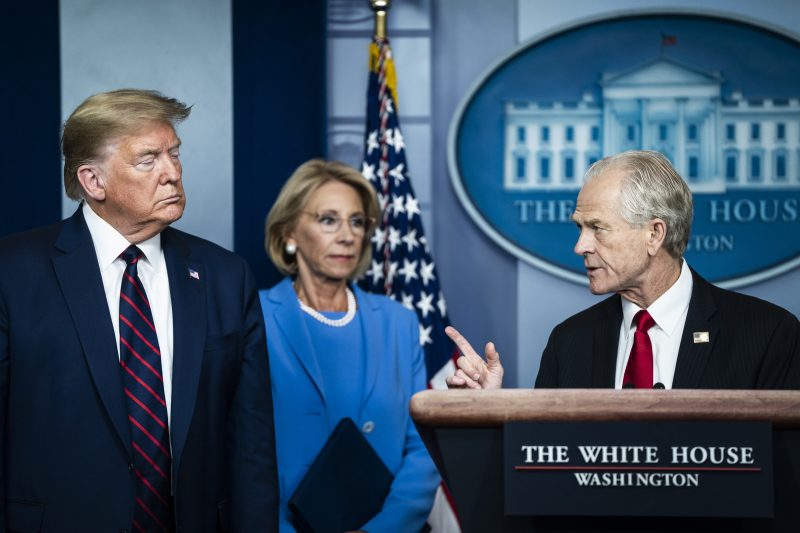
Supreme Court refuses to delay prison time for Trump aide Peter Navarro
Chief Justice John G. Roberts Jr. on Monday refused to delay prison time for Peter Navarro, a former senior aide to President Donald Trump, as he appeals his conviction for refusing to testify before Congress about his involvement in efforts to overturn the 2020 presidential election.
Navarro, a 74-year-old economist, is scheduled to report to federal prison in Miami before 2 p.m. Tuesday.
In a one-paragraph order, Roberts, who oversees emergency requests from the U.S. Court of Appeals for the D.C. Circuit, said he saw no basis to disagree with an appeals court ruling last week that Navarro must serve time while his appeal is underway.
Navarro was sentenced in January to four months after a jury convicted him on two counts of contempt of Congress.
The U.S. Court of Appeals for the D.C. Circuit last week refused Navarro’s request to remain free. A three-judge panel said Navarro “has not shown that his appeal presents substantial questions of law or fact likely” to undo his conviction or sentence.
After the Jan. 6, 2021, attack on the U.S. Capitol, Navarro published a book in which he described a plot to throw the election to Trump during the counting of electoral votes that day. He credited the idea to right-wing podcast host and former Trump strategist Stephen K. Bannon.
When the House committee investigating the attack issued subpoenas for Navarro and Bannon to elaborate on those plans, both men ignored them. Now the two are fighting prison sentences for contempt of Congress. The District Court judge presiding over Bannon’s case, however, allowed him to stay out of prison while Bannon pursued an argument on appeal not available to Navarro — that in refusing to testify, he was relying on advice from his attorney.
Navarro’s attorneys, who declined to comment Monday, told the Supreme Court on Friday that their client is “indisputably neither a flight risk nor a danger to public safety should he be released pending appeal.”
The attorneys said their client refused to comply with a congressional subpoena because he thought he was required to assert executive privilege. They argued that the law is not clear on whether Congress intended to punish senior presidential advisers in such circumstances.
But Navarro had no documentation to show that Trump ever planned to assert that privilege to keep his aide from testifying, and Trump has never publicly corroborated Navarro’s account.
In denying Navarro’s request on Monday, Roberts agreed with the appeals court finding that Navarro had given up the right at this stage to challenge the District Court’s conclusion that executive privilege was not invoked.
Rachel Weiner contributed to this report.
